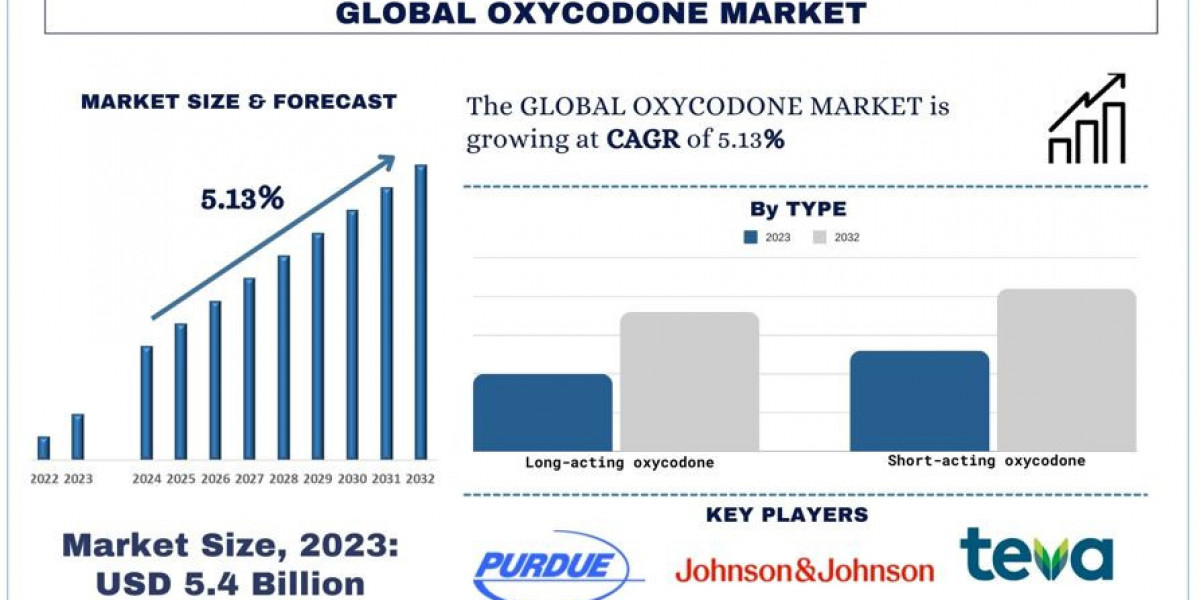Oxycodone is a strong semi-synthetic opioid analgesic of the 4-phenylpiperidine class that is utilized mainly for the control of moderate to severe pain. It falls in the category of opioids, which are analgesic in nature and function by attaching themselves to the opioid receptors in the central nervous system, thus reducing the perception of pain. Initially developed in Germany in 1916, it was chemically related to morphine and synthesized from thebaine, an alkaloid that occurs naturally in the opium poppy plant.
Demand
The demand for oxycodone can be attributed to the fact that it is used mostly for the management of severe pain that cannot be relieved by other opiate analgesics. For cancer pain sufferers, those with severe trauma, and even post-surgical patients who need strong pain relief, oxycodone fulfills their requirements. There are also different types of oxycodone products from pharmaceutical companies in terms of the concentration and forms of preparation for administration to patients with varying needs and levels of pain.
Nonetheless, oxycodone has also been widely used as a recreational drug, besides its proper utilization for treating moderate to severe pain. The drug is popular among those who want to achieve a state of happiness and have fun or those who suffer from opioid dependencies, thereby fuelling the opioid epidemic in many states.
Request To Download Sample of This Strategic Report - https://univdatos.com/get-a-free-sample-form-php/?product_id=63153
According to provisional data, the Centers for Disease Control and Prevention (CDC) estimates more than 108,000 drug overdose deaths occurred in the 12 months ending April 2022. While many types of drugs contribute to overdose mortality, opioids accounted for almost 75% of all drug overdose deaths in 2020.
Applications
Oxycodone is specifically used in the treatment of moderate to severe levels of pain that cannot be alleviated by other analgesics. It is classified under opioids that are used to treat moderate to severe pain by acting on opioid receptors in the brain and spinal cord to help alter the way the body processes pain signals. The drug comes in both immediate-release and extended-release forms to offer a versatile treatment plan depending on the severity and duration of the pain relieved by patients.
Common indications for oxycodone administration include patients who have undergone surgeries, suffer from severe trauma or have terminal cancer and severe pain. It is especially important for patients who need round-the-clock drug administration as the controlled-release formulations continuously deliver the active compound at a constant rate over a long time.
Cost
The price of oxycodone depends on factors such as the formulation, dosage, as well as the region in which the drug is sold. Currently, there are both branded and generic oxycodone in the market, which affects price differences from the pharmaceutical manufacturers. Branded formulation costs more since procedures involve research and development, advertising, and patent protections. However, the versions of oxycodone that enter the market through patent expiration are relatively cheaper than the proprietary brands.
Manufacturing
Oxycodone treatments are developed through the creation of drugs, medical equipment, and diagnostic instruments that help diagnose the disease and develop ways to treat it. Since the discovery of Oxycodone, the pharmaceutical industry has been an important aspect of the development of drugs and medication. Healthcare technology companies manufacture diagnostic instruments like endoscopes or imaging machinery for use in operations. To ensure the availability and quality of Oxycodone treatment, researchers, manufacturers, and healthcare providers have a role to play.
Ask for Report Customization - https://univdatos.com/get-a-free-sample-form-php/?product_id=63153
Conclusion
In conclusion, oxycodone is still one of the most effective pain relievers in dealing with severe pain despite the problems posed by its vulnerability to misuse and dependence. Due to the ease of access to the drug, it is also a component of comprehensive treatment plans for patients suffering from chronic or debilitating pain conditions. However, the opioid crisis indicated the need for the reform of the legal system as well as a comprehensive healthcare framework to ensure compliance with best practices in prescribing opioids, preventing diversion as well as supporting affected individuals.
In the future, further studies on the different management of pain and, more so, the development of formulations that are harder to abuse will significantly help in trying to solve the complex issues surrounding oxycodone and other opioids. By enhancing interprofessional practice development among healthcare providers, communities, and policymakers, it is possible to pursue the potential therapeutic value of oxycodone while avoiding the adverse effects and enhancing safer and more effective practices concerning pain management throughout the globe. According to the UnivDatos Market Insights analysis, the rising global incidence of Oxycodone, increasing elderly population with chronic pain conditions, expanding use in palliative care, and growing awareness of pain management, increasing regulatory approvals will drive the global scenario of the Oxycodone market.







